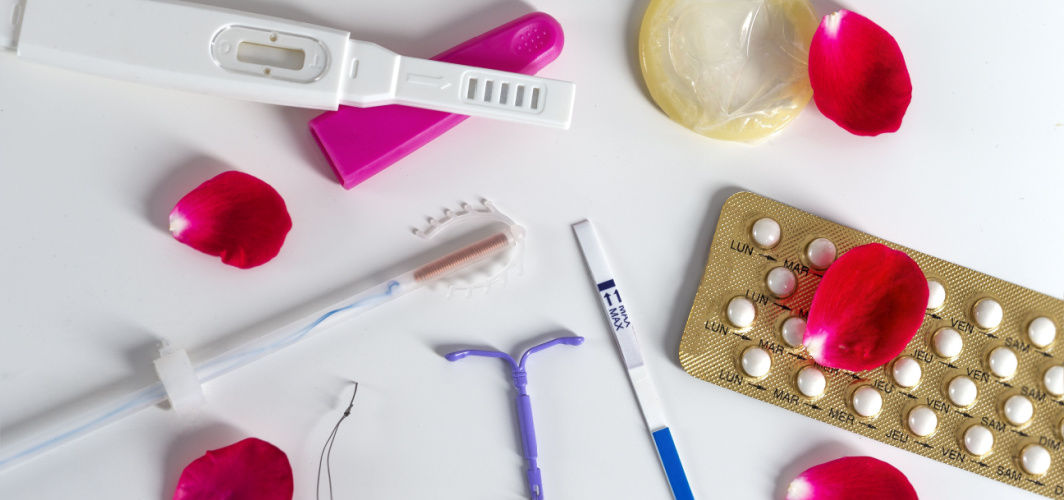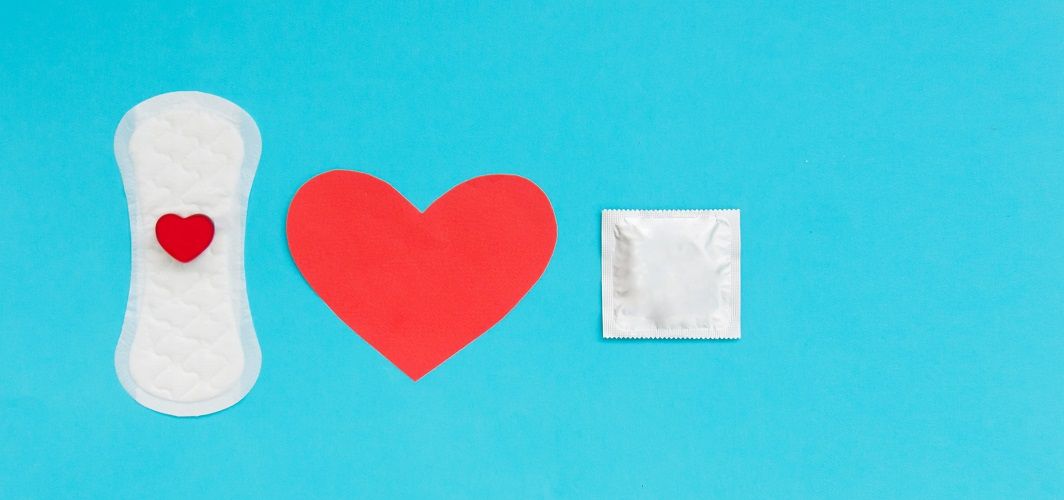Sexual Wellness
If Not Condoms What Can Be Used As Protection During Sex?
4 min read
By Apollo 24|7, Published on - 13 February 2023, Updated on - 06 August 2024
Share this article
0
0 like

Pleasure is important, but so is protection. Sex without protection can result in unwanted or unplanned pregnancies and sometimes sexually transmitted infections (STIs). If you are sexually active, you should be aware of all your options for protection. While most people consider condoms to be the best method of protection during sex, there are plenty of other options that you can choose from if you don’t like condoms or suffer from latex allergy. Read on to know the hormonal and non-hormonal alternatives for protection during sex.
Non-Hormonal Contraception
Diaphragm
A diaphragm is a dome-shaped reusable form of birth control made up of silicon that can be inserted into a woman's vagina before having sex. It should remain in place for a minimum of 6 hours and a maximum of 24 hours after penetration. It blocks the sperm from physically reaching the egg and fertilizing it. Its success rate is around 96%.
Cervical Cap
A cervical cap is a silicone cap shaped like a sailor’s hat. Women can insert it into their vaginas with a little spermicide before sex. It comes in different sizes and fits snugly over the cervix. It must stay in place for a minimum of 6 hours and a maximum of 48 hours after intercourse. You can safely have multiple sex encounters during these 48 hours. It is around 77% to 83% effective.
FAM
FAM, or fertility awareness method, is a form of abstinence. In this method, women track their periods and avoid having penetrative sex during the most fertile period. This method requires diligent tracking and has a large margin of error.
Pull-out Method
During the pull-out method, the male partner withdraws his penis from the vagina before ejaculating and prevents sperm from entering the vagina. It is not the safest method when used as the only mode of contraception as the pre-ejaculation fluid may contain sperm and can result in a pregnancy (गर्भावस्था).
According to Dr Hemaleka K, a gynaecologist associated with Apollo 24|7, "Pull- out method can't be relied as a sole method of contraception as it has a high failure rate. As the pre-ejaculatory fluid also contains sperms, failure rate is high and can result in pregnancy."
Hormonal Contraception
Oral Contraceptive Pills
Oral contraceptive pills are the most popular and effective birth control option, apart from condoms. They are around 98-99.7% effective. They contain a combination of estrogen or progesterone hormones that prevent the fertilization of the ovum (female egg). Additionally, there are emergency contraceptive pills that women can take within 12-24 hours after sex if they've had unprotected sex.
Patch
The hormonal patches for contraception look like bandages. They are attached to the skin of women and deliver a low dose of sex hormones to their bloodstream consistently to prevent pregnancy.
IUD
An intrauterine device (IUD) is a T-shaped device that is inserted into the uterus by a gynaecologist. It is 99% effective in preventing pregnancy and lasts for 3-10 years, depending on the type of IUD.
In addition to these, there are other hormonal contraceptives like rings, shots, and implants that you can opt for.
‘Safe sex is the best sex.’ This safety doesn’t just mean safety from unwanted pregnancies but also STIs like syphilis, gonorrhoea, and HIV. Consult your doctor and get a thorough checkup before choosing any preferred option for contraception.
FAQs
Q: How safe is the pull-out method?
A: The pullout method is around 78-80% effective in preventing pregnancy, only if you get the timing right. However, it does not protect you from STIs and is not the most reliable method of contraception.
Q: Is oral sex safe without protection?
A: No. Though there is no chance of pregnancy during oral sex, you may contract STIs.
Q: How can I protect myself during oral sex?
A: You should use a condom while having oral sex. You and your partner may also get an STI screening before having sex.
Q: What are the side effects of IUDs?
A: IUD can lead to irregular periods, acne, and pelvic pain. You should consult a gynaecologist if you experience these symptoms.
Q: What are the side effects of oral contraceptive pills?
A: Birth control pills can cause side effects like spotting, breast tenderness, elevated blood pressure, nausea, bloating, etc. Consult your gynaecologist if you experience any of these side effects.
Medically reviewed by Dr Sonia Bhatt.
Sexual Wellness
Consult Top Counseling Specialists
View AllLeave Comment
Recommended for you

Sexual Wellness
5 Things You Should Start Practising To Improve Your Sex Life
It’s common for couples to get stuck in a sexual rut, not quite being able to enjoy the passionate sex life they once had. There can be a number of reasons behind dry spells in relationships. This blog offers some effective tips for improving your sex life.

Sexual Wellness
Erectile Dysfunction Home Remedies: All You Need to Know!
Men with erectile dysfunction can find difficulty to maintain or unable to get erection. Because of this, couples who are trying to get pregnant can be difficult. Consult our doctors to know more about this condition.

Sexual Wellness
Is Period Sex Good or Bad?
We frequently ask ourselves, "Can we have sex while we are on our periods?" You certainly can, but you'll need to take certain precautions beforehand. What exactly are they? This blog answers all your questions.
Subscribe
Sign up for our free Health Library Daily Newsletter
Get doctor-approved health tips, news, and more.
Recommended for you

Sexual Wellness
5 Things You Should Start Practising To Improve Your Sex Life
It’s common for couples to get stuck in a sexual rut, not quite being able to enjoy the passionate sex life they once had. There can be a number of reasons behind dry spells in relationships. This blog offers some effective tips for improving your sex life.

Sexual Wellness
Erectile Dysfunction Home Remedies: All You Need to Know!
Men with erectile dysfunction can find difficulty to maintain or unable to get erection. Because of this, couples who are trying to get pregnant can be difficult. Consult our doctors to know more about this condition.

Sexual Wellness
Is Period Sex Good or Bad?
We frequently ask ourselves, "Can we have sex while we are on our periods?" You certainly can, but you'll need to take certain precautions beforehand. What exactly are they? This blog answers all your questions.


